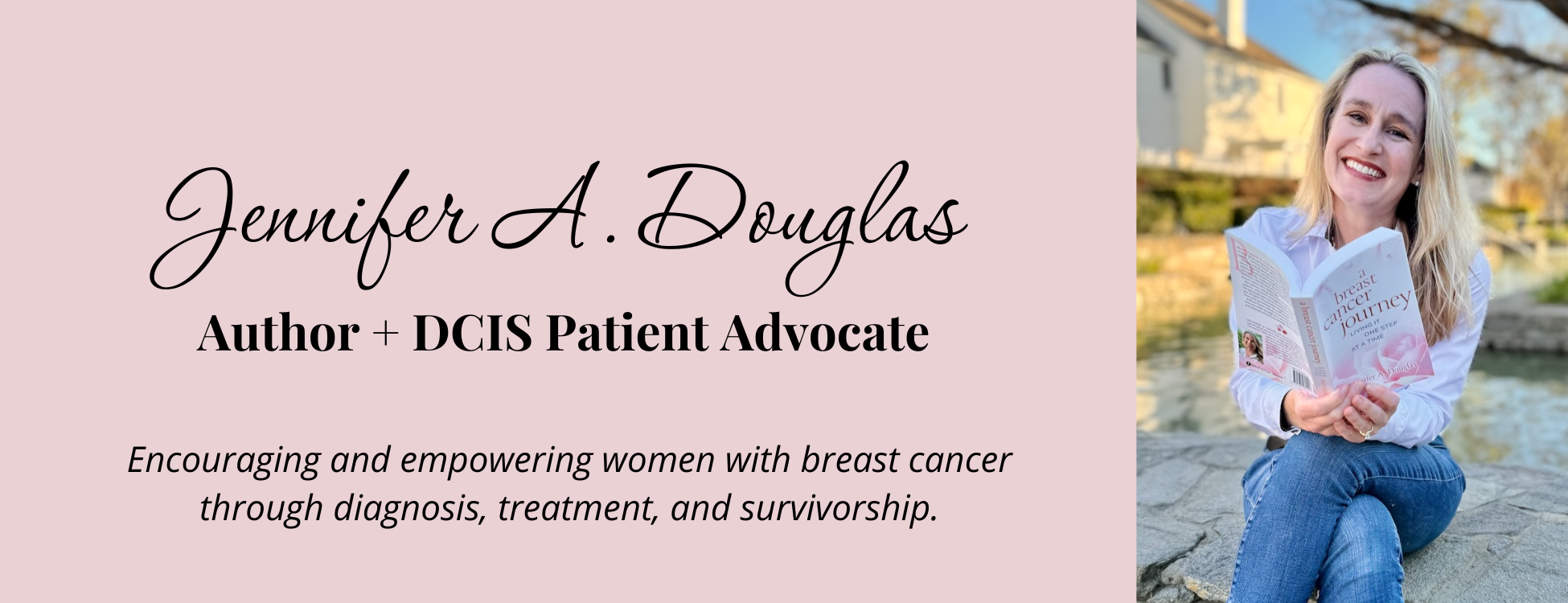
Delays during Cancer Treatment- A Framework to Move Forward
Delays during cancer treatment can be frustrating and anxiety-producing. I had a few unexpected delays. Not only did they impact the timeline of my treatment, but they also added to my emotional stress. Breast cancer can be overwhelming, and when delays happen, they can pile on and make things even more difficult.
I want to share with you a framework to work through the delays and move forward throughout the emotional turmoil and stress.
But first, I’d like to share the most significant delay that I experienced and how I adjusted and worked through it.
My Delay
When I was diagnosed with DCIS (stage 0 breast cancer) in Fall 2019, I immediately tried to put into place a timeline that would work to get the cancer out as quickly as possible. I had already delayed my biopsies when I switched medical groups, so I was highly motivated to get the surgery scheduled as soon as possible. Also, it was fall, and I wanted to try to finish treatment before the insurance reset at the first of the year.
At my diagnosis appointment at the end of September, I asked my surgeon if we could get a tentative surgery date on the calendar. My mom was going to be in town during October, and I hoped that I could have the surgery during her visit.
He was willing to hold a date, but I had other things that needed to happen before finalizing the surgical plan. We wanted to get the genetic testing done and get the results back, and also, I needed to have an MRI.
I left his office with a tentative surgery date and a list of things to do before then.
It was all going fine until my MRI results came back.
MRI Madness
I had the MRI on Monday, and my surgeon called me the very next afternoon. I needed to schedule an ultrasound to follow up on the findings, and I needed to get that done before my appointment with him on Thursday.
I scrambled and managed to get in to have an ultrasound on Wednesday. The radiologist found three suspicious findings on my left breast. This was on my “good” breast- the one we thought didn’t have cancer.
Those imaging results devastated my surgical timeline. During my appointment on Thursday, my surgeon said that I needed to have three more biopsies. Two of those would be ultrasound-guided, and one of them needed to be MRI-guided.
I was so upset. I remember sharing with my surgeon how devastated I was. I was surprised when he shared that he was frustrated too. He said that this type of delay rarely happened. He had asked the head of imaging to review my MRI for a second opinion to validate the results.
I asked him if I could choose a mastectomy to avoid the biopsies. Did I mention that I hate biopsies? I was willing to change surgical plans to avoid them.
Unfortunately, the new biopsies weren’t optional because one of the findings was a suspicious lymph node. My surgeon needed to know before surgery if my cancer had spread to the lymph nodes.
The lumpectomy wasn’t going to happen when we had initially scheduled it. There was no time to fit the biopsies in.
Change in Plans
I was devastated. I had been happy that my mom would be with us during my surgery, and it looked like that wasn’t going to happen. She offered to stay, but it had been a long and stressful visit for her with all my appointments. Dave was planning to take leave during my surgical recovery. I had friends and neighbors who could help us with some of our practical needs during my recovery.
I got the biopsies scheduled the following week. But, because of the rush, we needed to travel down to Santa Monica for them. I wasn’t going to be able to get them done in one day. So, I had one biopsy on Tuesday afternoon and two on Thursday Morning. With LA traffic both ways, those days were long and exhausting.
The delays pushed my surgery back about a week. In the grand scheme of things, it wasn’t too much of a wait. But living through the uncertainty was terrible.
Treatment Isn’t a Straight Line
Unfortunately, cancer treatment isn’t a nice, organized, straight pathway. It doesn’t always fit into a nice, neat, scheduled timeline. With every new piece of information, our treatment can get accelerated, changed, or delays. Living through these changes can be challenging to our emotional stamina. We set ourselves up for a timeline, plan for this treatment path, and then need to completely change it when more information about our cancer comes up.
Framework for Delays:
1. Discover the Delay
The first step through this framework happens to us and is the most disruptive part of this process. We discover the delay via a message, phone call, or appointment. Once that happens, everything needs to be adjusted.
I remember the phone ringing when I was in the middle of shopping with my mom. I immediately recognized the number, and when I heard my surgeon’s voice, I knew that there was a change coming. I appreciated that he took the time to call me, but it forced me to stop on the shopping trip and move onto the next step in my treatment journey.
2. Do the Next Action
After we discover the delay, we need to do the next thing. I recommend doing something right away after discovering the delay.
I found that I had about an hour of focused attention right after finding out about a delay. I used that hour to do something to move forward. Sometimes that is picking up the phone and making another appointment. Perhaps it means driving over to the doctor’s office for an urgent appointment.
I had a window of time before the emotions took over, and I would use it to make a plan.
If you are feeling especially emotional, then I recommend flipping steps 2 and 3. It is easier to schedule appointments when we aren’t exploding with strong emotions.
3. Deal with the Emotions
I had so many strong emotions during cancer treatment. I wasn’t in control of the results, and I was frustrated about waiting. I just wanted this all over, and I would feel angry, sad, scared, and impatient.
In my experience, the shock of the delay would wear off, and I would get emotional. I remember trying to organize my week of biopsies and getting frustrated. I knew what a long week it would be, and I was afraid.
When I felt emotional, it was vital for me to take some time to deal with the feelings. Burying them was not going to work. Here are a few of the ways I would deal with the emotions:
- Walking
- Talking to a friend
- Sitting outside
- Crying
- Yelling (ok, not the best coping mechanism, but I’m trying to keep it real)
- Journaling
- Prayer
- Meditation
These activities helped me to process how I was feeling about the delay. I still remember having trouble sleeping as I was walking through the worry and anxiety. It was tough to have the treatment delayed.
4. Delegate and Reschedule
Treatment delays mean that our plans have changed. Often, this requires us to change the way we are doing the rest of our lives between medical appointments. When I discovered that I needed to have more biopsies done, I needed to delegate.
Here is one example of how I needed to delegate things when my treatment got delayed. I wouldn’t be able to drive my son, Dan, to his eye appointment because I needed to be at my biopsy. This appointment wasn’t easily rescheduled and had already been delayed due to my cancer diagnosis. I needed to get creative.
My mom could be there with him, but I needed to find transportation for them since Dave and I would be taking the car with us to the biopsies. I asked our next-door neighbor if he could drive them to the appointment. Then, I filled out the required paperwork to allow my mom to be the responsible adult during Dan’s eye appointment.
Ideally, we would delegate and reschedule things after scheduling the next appointment and dealing with the heated emotions. Delegating and rescheduling are more manageable when we are calmer. Also, it is easier to ask others for help when we have medical appointments scheduled.
5. Distract Yourself
Now, you’ve done all the work, and it is time to get good at distracting yourself. Treatment delays are not fun, but we can make the waiting process more enjoyable. Here are some ways that I distracted myself during the delays:
- Shopping trips with friends
- Painting my nails
- Playing games on my iPad
- Reading a fun book
- Watching a tv show
- Crafting
- Going out to coffee or lunch
- Coloring
- Playing a board game with the kids
- Doing a puzzle
- Cleaning
- Organizing
- Gardening
- Playing my flute
These distractions allowed me to move through the delays without staying in an emotionally frustrated place. I took advantage of the extra time that I was feeling good and tried to have fun. I tried to make my distractions as active as possible to work out my nervous energy.
Your delay may have happened because of a need for more recovery before the next step in the treatment. In that case, your distraction might need to be more low-key to support your healing.
Delays in our treatment are challenging to deal with. I hope that this framework helps you move through the uncertainty and get through to the next step on your treatment journey.
How did you work through delays in your treatment? If you have any tips to share, feel free to comment and share with the community!
Jennifer Douglas
Jennifer Douglas is an author, patient advocate, and DCIS breast cancer survivor. After navigating her own breast cancer journey in 2019, she began writing and encouraging others who were newly diagnosed. Her resources include her book, "A Breast Cancer Journey: Living It One Step at a Time," and her online support course, "Encourage: Breast Cancer and Beyond." Jennifer also actively supports patients through her online presence and direct involvement in communities and support groups, offering guidance and encouragement every step of the way.


You May Also Like

Cancer Treatment Over The Holidays
November 11, 2025
All About Core Needle Breast Biopsies
November 3, 2020
